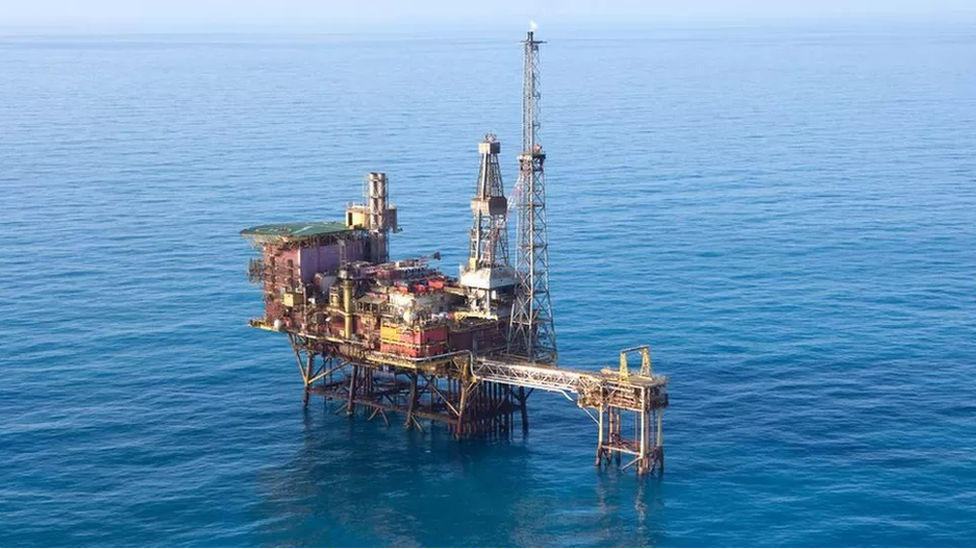North Sea energy firm Repsol handed ┬Ż160,000 flaring fine
- Published

Flaring at the Fulmar platform took place without consent in July 2022
An energy firm has received the largest ever fine by the North Sea regulator for breaching offshore emissions rules.
Repsol was handed a ┬Ż160,000 penalty after releasing 73 tonnes of gas without permission from three oil platforms.
The North Sea Transition Authority (NSTA) announced the sanction as part of a crackdown of flaring and venting.
The company admitted offences at the Auk North, Halley and Fulmar fields last year.
An NSTA report said the case "undermined public trust and confidence in the industry".
The regulator said flaring - the process of burning off excess gas, or venting of unignited gas - accounted for about a fifth of all emissions from the North Sea's oil and gas production.
Repsol had been given short-term permission to flare from the platforms as part of decommissioning works in January 2019.
Those consents expired on 30 June 2022, but flaring continued into the first week of July.
Jane de Lozey, NSTA director of regulation, urged Repsol to "learn from its failings" after imposing the fine.
She said: "Reducing emissions and meeting regulatory requirements is absolutely essential if industry is going to maintain its social licence to operate.ŌĆ»
"We will continue to ensure that operators comply with regulations in the North Sea and will not hesitate to take action on the occasions that they do not."ŌĆ»
The Fulmar platform, east of Dundee in the central North Sea, ceased operations in October 2018, with plug and abandonment works due to begin from 2025.
It is now mainly used as a processing facility for other oil and gas companies.
Production at Auk is due to end when the field reaches its limit in 2033.
A Repsol spokesperson said: "We have accepted responsibility for unauthorised flaring and venting at our Auk North, Halley and Fulmar fields.
"We co-operated fully with the NSTA's investigation and have taken steps to mitigate the possibility of any future breaches."